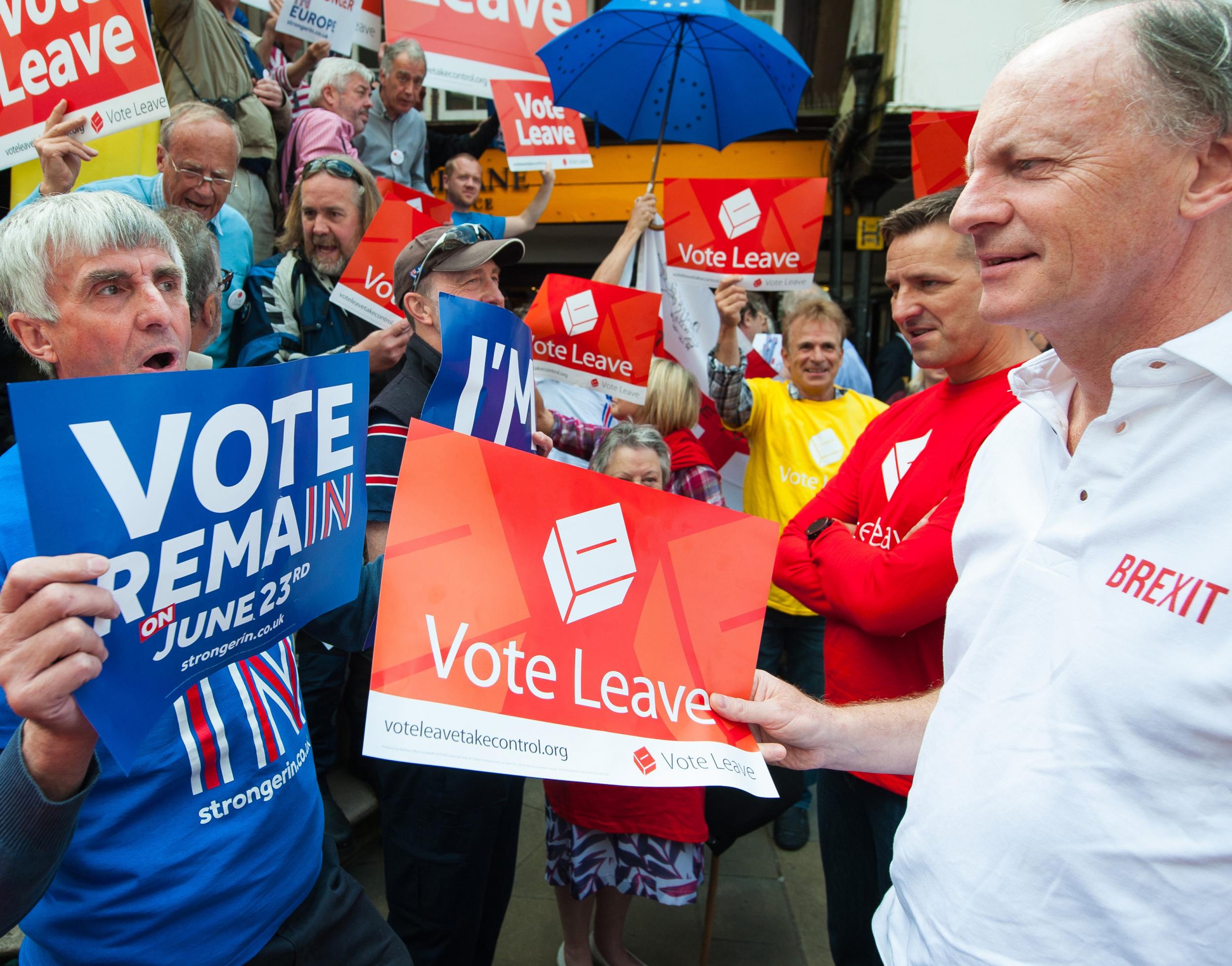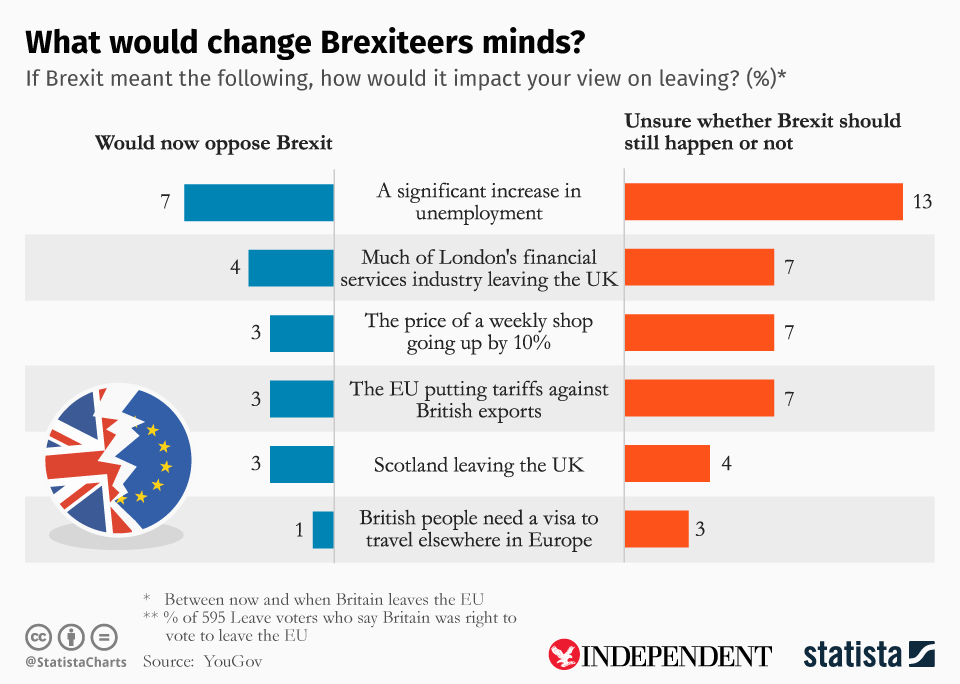Brexit: What would make Leave voters change their minds?
Rise in unemployment would convince the most Leave voters the UK should stay in the EU

Your support helps us to tell the story
From reproductive rights to climate change to Big Tech, The Independent is on the ground when the story is developing. Whether it's investigating the financials of Elon Musk's pro-Trump PAC or producing our latest documentary, 'The A Word', which shines a light on the American women fighting for reproductive rights, we know how important it is to parse out the facts from the messaging.
At such a critical moment in US history, we need reporters on the ground. Your donation allows us to keep sending journalists to speak to both sides of the story.
The Independent is trusted by Americans across the entire political spectrum. And unlike many other quality news outlets, we choose not to lock Americans out of our reporting and analysis with paywalls. We believe quality journalism should be available to everyone, paid for by those who can afford it.
Your support makes all the difference.A large rise in unemployment is the event most likely to shake Leave voters’ resolve to exit the EU, according to a new poll by YouGov.
The pollsters found that if the number of people not employed rose significantly, 7 per cent of people would object to Brexit and 13 per cent would become unsure.
So far, the UK unemployment rate has held steady at 4.9 per cent of the population, but ministers have raised concerns that employers will begin to exit the UK.

If the financial sector fled the EU it would also be a major reason for Leave voters to switch to Remain. Four per cent of Brexiteers say if this happened they would then oppose leaving, and 7 per cent say they would no longer be sure about it.
The results of the survey follow a warning by the head of the British Bankers’ Association that the UK's largest banks are planning on moving overseas.
Needing a visa to travel to Europe – one of the key objections to Brexit made by the young – had little sway over Brexiteers and was ranked bottom of their list of concerns. A vote for Scottish independence was not shown to have much influence on Leave voters either.
Yet although the margins are small, any of these scenarios would be enough to tip the balance of public opinion from towards remaining in the UK, according to YouGov.
The infographic, by Statistica, demonstrates all the factors that could turn the nation in favour of remaining in the EU.
And the vast majority of Brexiteers, for the time being, believe Brexit will make things better, or at least not make things worse.
Of all the possible negative effects of Brexit, the one Leave voters are most worried about happening is the price of their weekly shop going up.
But only a quarter of Leave voters think this is likely to happen.
Just under a quarter (24 per cent) of Leave voters also think that the British economy will get worse in the short term as a result of Brexit – but this drops to just 3 per cent in the long term.
Join our commenting forum
Join thought-provoking conversations, follow other Independent readers and see their replies
Comments